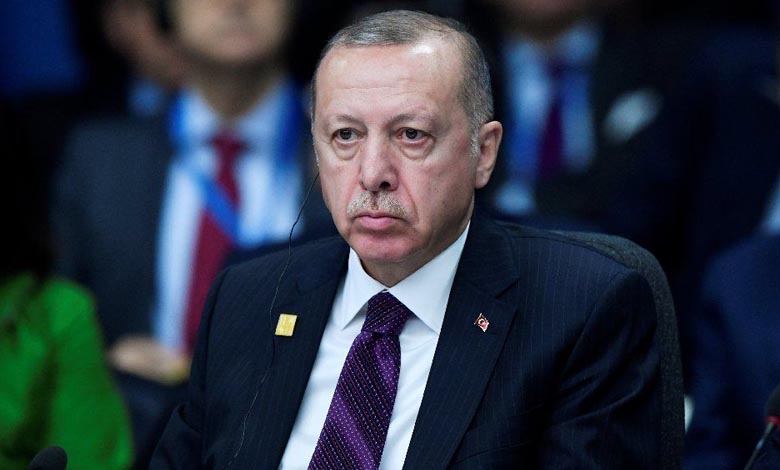Erdogan slaps Syrian opposition with hand on al-Assad – Times Online

British newspaper ‘The Times’ considered that Turkish President Recep Tayyip Erdogan dealt a blow to the pro-Turkish Syrian opposition by extending his hand to his Syrian counterpart Bashar al-Assad after years of hostility, pointing out that Ankara is the last strong ally of the opposition factions working on changing its course and heading in a major turning point towards reconciliation with Damascus.
Rami Jarrah, a Syrian living in Germany and one of the first Syrian dissidents to back the protests at the beginning of the protests 12 years ago, said the shift in Turkey’s position “is not a surprise, but it is still a big slap in the face of those who aspire to a free Syria.”
According to the British newspaper, he said the Syrian diaspora has made mistakes. “Syrian politicians, activists and journalists have treated Turkey as a one-party state and have ruled out relations with Turkish opposition parties,” he said. This has led to resentment toward Syrian Turks who oppose Erdogan and eventually leave their fate in the hands of a single pragmatic politician.”
The paper points out that Erdogan has motives for engaging in a reconciliation with Damascus, given growing anger inside Turkey at the presence of 3.6 million Syrian refugees. It explains that opinion polls show that the vast majority of Turks want them to leave, as have long-standing secular opposition parties in Turkey, “which sympathizes with al-Assad.”
The Turkish president has been pushing to return Syrian refugees to a safe zone he had planned to expand 30 kilometers deep after repeatedly threatening a massive ground operation aimed at seizing three cities held by Kurdish militants, but the threat was muted as Turkey pushed for a Russian-sponsored reconciliation with Damascus, which along with Moscow and Washington had previously opposed any new Turkish military operation.
Erdogan wants to get rid of the refugee burden after their presence became unwanted by the majority of Turks. The Times pointed out that he had initially welcomed Syrians displaced by the so-called Arab Spring revolutions and had positioned himself as a champion of the oppressed, while he planned to be a leader of the Muslim world – and they, in turn, largely supported him “even when he slid into a form of authoritarianism.”
Turks believe that if Syrians stay and become citizens of Turkey, as they have already done with hundreds of thousands, they will become an important electoral locker that will increase future votes in favor of Erdogan, something the opposition has long warned against as authorities begin to grant citizenship to many displaced people and foreign refugees, most of them Syrians.
Erdogan’s hasty reconciliation efforts with Damascus in the context of a plan to correct Turkey’s foreign relations are only motivated by Turkey’s mounting economic problems and the region’s political tides against him, and with these changes he will quickly rebuild bridges with his neighbors and present himself as the leader who will bring Syrians home.
The British newspaper referred to the reconciliation that Erdogan held with regional rivals, beginning with the United Arab Emirates, then Saudi Arabia and Israel, while offering initiatives towards Egypt.
The Times quoted Turkey’s last ambassador to Syria, Ömer Önhon, as saying, “Reconciliation with Egypt makes diplomats happy, but for ordinary people, it’s not important. Syria is unique because its problems directly affect people on the street in Turkey, especially the refugee issue. It could even affect how people vote.”
It highlighted a complex path that suggests that full reconciliation between Turkey and Damascus would be a long process given the deep fractures in Turkish-Syrian relations, including Ankara’s support for Islamist armed militias, the Syrian regime’s co-operation on more than one occasion with Kurdish militants, and the refugee file, all of which cast a shadow over rapprochement between the two countries.
It is not for Turkey to say when and how they should return. Syria is the source of the problem and will also be the source of the solution, but the regime and its mentality remain the same as they were in 2011.
Turkish opponents of the refugee issue are campaigning and Ümit Özdağ, a veteran nationalist, recently founded the Victory Party, with only refugees on his agenda.
If Erdogan can meet Assad before the June election, it will have seized his golden opportunity, says the British newspaper, citing Mustafa Qorbuz, a professor at the American University and a researcher at the Arab Center in Washington, who says Erdogan is selling “an idea, not a reality.”
The Turkish opposition was portraying him as a radical Islamist who could not go beyond ideological limits. To win this difficult election, Erdogan aims to prove that he is a pragmatic populist who can offer anything, including promises from opposition leaders to address the refugee crisis.












